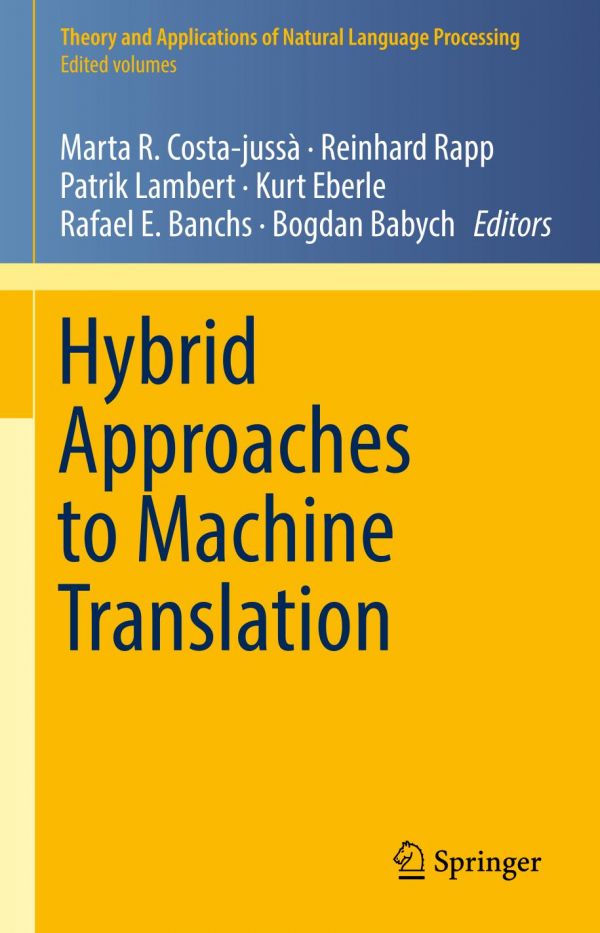

Most ebook files are in PDF format, so you can easily read them using various software such as Foxit Reader or directly on the Google Chrome browser.
Some ebook files are released by publishers in other formats such as .awz, .mobi, .epub, .fb2, etc. You may need to install specific software to read these formats on mobile/PC, such as Calibre.
Please read the tutorial at this link: https://ebookbell.com/faq
We offer FREE conversion to the popular formats you request; however, this may take some time. Therefore, right after payment, please email us, and we will try to provide the service as quickly as possible.
For some exceptional file formats or broken links (if any), please refrain from opening any disputes. Instead, email us first, and we will try to assist within a maximum of 6 hours.
EbookBell Team

4.3
88 reviewsThis volume provides an overview of the field of Hybrid Machine Translation (MT) and presents some of the latest research conducted by linguists and practitioners from different multidisciplinary areas. Nowadays, most important developments in MT are achieved by combining data-driven and rule-based techniques. These combinations typically involve hybridization of different traditional paradigms, such as the introduction of linguistic knowledge into statistical approaches to MT, the incorporation of data-driven components into rule-based approaches, or statistical and rule-based pre- and post-processing for both types of MT architectures.
The book is of interest primarily to MT specialists, but also – in the wider fields of Computational Linguistics, Machine Learning and Data Mining – to translators and managers of translation companies and departments who are interested in recent developments concerning automated translation tools.